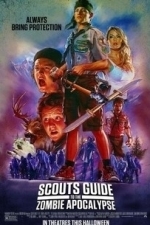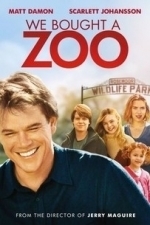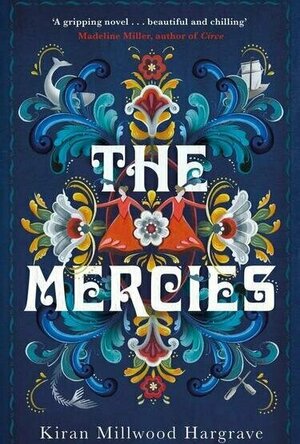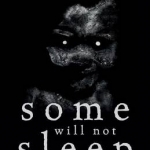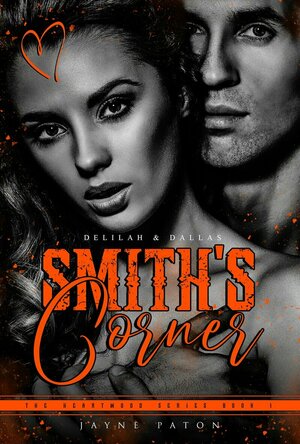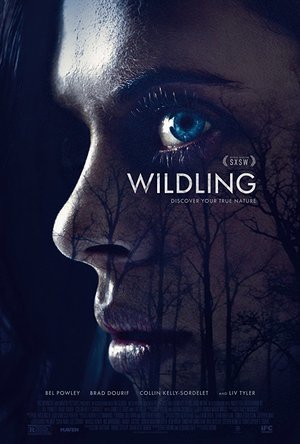Search
Search results
Gareth von Kallenbach (980 KP) rated Scouts Guide to the Zombie Apocalypse (2015) in Movies
Aug 6, 2019
Campfires, going to senior parties, and girls. That’s you would normally think about if you were a junior in high school still in scouts. Ben (Tye Sheridan), Carter (Logan Miller), and Augie (Joey Morgan) have been best friends for years since they first joined scouts. While Augie is getting his Condor Patch, the highest achievement a scout can get; Ben and Carter think it’s about time they leave scouts, since they are going into their junior year and don’t want to be seen as dorks. However after ditching Augie the two set out to find the secret senior party where Carter’s sister Kendall (Halston Sage) is at and Ben is all for it. However Ben begins to notice some abnormal things in town, like their scout master (David Koechner) not showing up for the campfire and the town being completely abandoned. The two make a pit stop and run into some trouble at a strip club, much to Carters delight due to the bouncer being mysteriously gone from the door. Unfortunately the two get a little more than a lap dance when they come face to face with the source of all the odd behavior, Zombies. Luckily they befriend Denise (Sarah Dumont) a cocktail waitress from the club and the three of them plus Augie set out on a mission to save Kendall before the government decides what to do to the zombie infested town.
From Christopher B. Landon comes Scout’s Guide to the Zombie Apocalypse. With Landon being most known for working on the Paranormal Activity franchise, this movie is a bit of a change from his usual work. Scout’s Guide to the Zombie Apocalypse is exactly what you would want from a comedy horror movie obviously targeting young adults. It has witty lines, zombies, and attractive leads. While the movie sometimes boarders the lines of too campy, I feel it balances well. While the whole concept of the film is silly, it is executed in a brilliant way and thankfully they don’t rely heavily on dick jokes.
I was fortunate enough to be able to go the Scout’s Guide to the Zombie Apocalypse Ultimate Fan Experience. They gave shirts to everyone who attended and the excitement could be felt while in the room with avid zombie film fanatics. However at the beginning of the film it showed a special piece of film just for the event, and it was awful. Ten minutes of Dillion Francis’s zombie cameo in a music video that never seemed to end. While some enjoyed it most of the audience sighed with relief when it was over. That has to be my only concern with the event, and thankfully it was for the fan experience and more than likely will not be in the actual film showings (General public you are saved). I would recommend this movie for people who enjoy campy horror films, since by all means this film is anything but serious. Also would not recommend of young children, there is some nudity.
I would give this film a 3.5/5 stars. While it was a fun film that kept me laughing for most of it; that fan experience clip definitely was a disaster. I would definitely watch the
From Christopher B. Landon comes Scout’s Guide to the Zombie Apocalypse. With Landon being most known for working on the Paranormal Activity franchise, this movie is a bit of a change from his usual work. Scout’s Guide to the Zombie Apocalypse is exactly what you would want from a comedy horror movie obviously targeting young adults. It has witty lines, zombies, and attractive leads. While the movie sometimes boarders the lines of too campy, I feel it balances well. While the whole concept of the film is silly, it is executed in a brilliant way and thankfully they don’t rely heavily on dick jokes.
I was fortunate enough to be able to go the Scout’s Guide to the Zombie Apocalypse Ultimate Fan Experience. They gave shirts to everyone who attended and the excitement could be felt while in the room with avid zombie film fanatics. However at the beginning of the film it showed a special piece of film just for the event, and it was awful. Ten minutes of Dillion Francis’s zombie cameo in a music video that never seemed to end. While some enjoyed it most of the audience sighed with relief when it was over. That has to be my only concern with the event, and thankfully it was for the fan experience and more than likely will not be in the actual film showings (General public you are saved). I would recommend this movie for people who enjoy campy horror films, since by all means this film is anything but serious. Also would not recommend of young children, there is some nudity.
I would give this film a 3.5/5 stars. While it was a fun film that kept me laughing for most of it; that fan experience clip definitely was a disaster. I would definitely watch the
Gareth von Kallenbach (980 KP) rated We Bought a Zoo (2011) in Movies
Aug 7, 2019
From the director of Jerry Maguire and Almost Famous, Cameron Crowe has brought us a great new film starring Mat Damon, Scarlett Johansson, Thomas Hadden Church and up and coming star Elle Fanning. Packed with amazing talent; “We Bought a Zoo” is a heartwarming true story of a man who wants to start over and in doing so, he provides a new life for his young family and his new friends.
Benjamin Mee (Mat Damon), a widowed father of two young children Dylan (Colin Ford) and Rosie (Magie Elizabeth Jones) are in need of a new start. Benjamin’s brother Duncan (Thomas Haden Church) has always provided Benjamin with useless and impractical advice. Only this time he strikes the nail on the head by telling his brother that he has to start over. He teams up with Mr. Stevens (J.B Smoove), a first time real estate agent and his daughter Rosie to find the perfect home to start there new future. When they come across the perfect house it comes with some big responsibilities. The Mee family have just become the new owners of a struggling Zoo (Rosemoore Wildlife Park). The Zoo is run by Kelly Foster (Scarlett Johansson) head zookeeper, Peter, Robin and her cousin Lily (Elle Fanning).They are in need of someone to take charge of the Zoo or it will close forever. With over forty seven animal species, the Zoo is in need of someone with lots of heart and determination to keep it from closing. Although everybody has doubts about Benjamin, even himself, he never gives up. Benjamin and his family are able to start fresh and after an argument here and there among father and son, are able to leave the past behind and look forward to the future.
“We Bought a Zoo” is such a heartwarming true story that will leave you with inspiration. The film is filled with vibrant colors, great cinematography, amazing actors and filled with such inspiration that I would be surprised if it is not in this years Oscar line up. Mat Damon surely delivers in his portrayal of Benjamin Mee. Most children actors don’t go far in the showbiz but great things come in small packages with Magie Elizabeth Jones. At her very young age of seven and her performance in this film I would be surprised if she doesn’t end up being a big star. Elle Fanning and Colin Ford make the perfect young couple and were perfectly paired up as the roles of Colin and Lily and like her sister Dakota Fanning she is becoming a great young actress. I wasn’t very impressed with Scarlett Johansson in this film as she always in my opinion plays the same sort of character in most of her movies with the exception of The Black Widow in the Iron Man films. Though having a somewhat small part in this film, Thomas Haden Church always seems to live up to the characters he portrays especially as Duncan.
This film is one that definitely can not be missed and is a perfect film to kick of the new year. If you love animals and are wanting to see a heartfelt film you will with out a doubt love this film and is definitely Oscar worthy. I left the theater feeling inspired and wanting to help animals that are going extinct. Big cats are disappearing at an alarming rate and with our help we can cause an uproar. To help go to causeanuproar.org to help.
Benjamin Mee (Mat Damon), a widowed father of two young children Dylan (Colin Ford) and Rosie (Magie Elizabeth Jones) are in need of a new start. Benjamin’s brother Duncan (Thomas Haden Church) has always provided Benjamin with useless and impractical advice. Only this time he strikes the nail on the head by telling his brother that he has to start over. He teams up with Mr. Stevens (J.B Smoove), a first time real estate agent and his daughter Rosie to find the perfect home to start there new future. When they come across the perfect house it comes with some big responsibilities. The Mee family have just become the new owners of a struggling Zoo (Rosemoore Wildlife Park). The Zoo is run by Kelly Foster (Scarlett Johansson) head zookeeper, Peter, Robin and her cousin Lily (Elle Fanning).They are in need of someone to take charge of the Zoo or it will close forever. With over forty seven animal species, the Zoo is in need of someone with lots of heart and determination to keep it from closing. Although everybody has doubts about Benjamin, even himself, he never gives up. Benjamin and his family are able to start fresh and after an argument here and there among father and son, are able to leave the past behind and look forward to the future.
“We Bought a Zoo” is such a heartwarming true story that will leave you with inspiration. The film is filled with vibrant colors, great cinematography, amazing actors and filled with such inspiration that I would be surprised if it is not in this years Oscar line up. Mat Damon surely delivers in his portrayal of Benjamin Mee. Most children actors don’t go far in the showbiz but great things come in small packages with Magie Elizabeth Jones. At her very young age of seven and her performance in this film I would be surprised if she doesn’t end up being a big star. Elle Fanning and Colin Ford make the perfect young couple and were perfectly paired up as the roles of Colin and Lily and like her sister Dakota Fanning she is becoming a great young actress. I wasn’t very impressed with Scarlett Johansson in this film as she always in my opinion plays the same sort of character in most of her movies with the exception of The Black Widow in the Iron Man films. Though having a somewhat small part in this film, Thomas Haden Church always seems to live up to the characters he portrays especially as Duncan.
This film is one that definitely can not be missed and is a perfect film to kick of the new year. If you love animals and are wanting to see a heartfelt film you will with out a doubt love this film and is definitely Oscar worthy. I left the theater feeling inspired and wanting to help animals that are going extinct. Big cats are disappearing at an alarming rate and with our help we can cause an uproar. To help go to causeanuproar.org to help.
ClareR (6067 KP) rated The Mercies in Books
Feb 25, 2020 (Updated Feb 25, 2020)
The Mercies is a slow burn of a novel, set in the Arctic town of Vardø in 1617 (Norway, the part that was called Finnmark). On Christmas Eve, whilst all of the men are out fishing, a storm blows in and kills them all. The women are left without their husbands, brothers and fathers, and must learn to fend for themselves. Maren Magnusdatter is one of these women. She watches as her father, brothers and future husband are drowned.
Three years later, a Scot, Absalom Cornet and his young Norwegian wife, Ursa, arrive. Absalom has been appointed Commissioner of Vardø, and is adamant that witchcraft was the cause of the storm three years ago. The fact that the women are surviving and taking on the roles of their dead menfolk doesn’t help their case. Absalom only sees evil, and women who have forgotten their place as servants of God. He is a witch finder, and has been responsible for the prosecution and death of women at home in Scotland. Unsurprisingly, he’s not a very nice character, and I liked NOT liking him, although I couldn’t help but feel sorry for Ursa. She is shy and inexperienced in the ways of the world. She has been shut away, caring for her sick younger sister. She knows nothing of what is expected of her as a wife - in every sphere. She doesn’t know how to keep a house at all. This is where Maren steps in as an advisor. They become good friends, and there is the beginnings of something more than just a simple friendship. I loved the interactions between these two women. Maren, strongly independent, competent and lonely, and Ursa, inexperienced, unhappy and lonely. In other circumstances, theirs could have been a good friendship - but unlikely because of social status, I should think.
The writing in this is gorgeous. The descriptions of the landscape and the sea made me feel as though I was standing there with them (warmer though!), and I loved getting to know the women, even the ultra-religious women who were only too keen to give up their fellow towns-women as witches. This part doesn’t happen for quite a while, so we’re given the chance to become emotionally invested in these characters. So when we read of their treatment at the hands of Absalom and his fellow witch hunters, it makes it all the more appalling. If it wasn’t bad enough already.
I love historical fiction, and I really liked how this was written in such a way that these didn’t really seem to be women separated from us by 400 years. They were normal women, working hard to survive and make lives for the,selves. Which made it all the more sad. There’s no way I could detach myself and NOT read this with a modern woman’s eye. These women were punished for something that we take for granted: independence.
Despite the terrible things that happen, it’s a beautifully written, very enjoyable book that I would easily recommend to anyone, even though it’s just like I would imagine the landscape around Finnmark is: bleak, yet beautiful.
Many thanks to NetGalley and the publisher for my copy of this book to read and review.
Three years later, a Scot, Absalom Cornet and his young Norwegian wife, Ursa, arrive. Absalom has been appointed Commissioner of Vardø, and is adamant that witchcraft was the cause of the storm three years ago. The fact that the women are surviving and taking on the roles of their dead menfolk doesn’t help their case. Absalom only sees evil, and women who have forgotten their place as servants of God. He is a witch finder, and has been responsible for the prosecution and death of women at home in Scotland. Unsurprisingly, he’s not a very nice character, and I liked NOT liking him, although I couldn’t help but feel sorry for Ursa. She is shy and inexperienced in the ways of the world. She has been shut away, caring for her sick younger sister. She knows nothing of what is expected of her as a wife - in every sphere. She doesn’t know how to keep a house at all. This is where Maren steps in as an advisor. They become good friends, and there is the beginnings of something more than just a simple friendship. I loved the interactions between these two women. Maren, strongly independent, competent and lonely, and Ursa, inexperienced, unhappy and lonely. In other circumstances, theirs could have been a good friendship - but unlikely because of social status, I should think.
The writing in this is gorgeous. The descriptions of the landscape and the sea made me feel as though I was standing there with them (warmer though!), and I loved getting to know the women, even the ultra-religious women who were only too keen to give up their fellow towns-women as witches. This part doesn’t happen for quite a while, so we’re given the chance to become emotionally invested in these characters. So when we read of their treatment at the hands of Absalom and his fellow witch hunters, it makes it all the more appalling. If it wasn’t bad enough already.
I love historical fiction, and I really liked how this was written in such a way that these didn’t really seem to be women separated from us by 400 years. They were normal women, working hard to survive and make lives for the,selves. Which made it all the more sad. There’s no way I could detach myself and NOT read this with a modern woman’s eye. These women were punished for something that we take for granted: independence.
Despite the terrible things that happen, it’s a beautifully written, very enjoyable book that I would easily recommend to anyone, even though it’s just like I would imagine the landscape around Finnmark is: bleak, yet beautiful.
Many thanks to NetGalley and the publisher for my copy of this book to read and review.

ASAP54 Search and Shop for Fashion
Shopping and Lifestyle
App
ASAP54: Welcome to your go-to search tool for fashion! Here to solve your search for your next...

Lovestruck Choose Your Romance
Games, Entertainment and Stickers
App
Lovestruck is your portal to the greatest interactive romance stories! Your happily ever after may...
Lyndsey Gollogly (2893 KP) rated Some Will Not Sleep: Selected Horrors in Books
Jun 22, 2021
90 of 250
Kindle
Some Will Not Sleep: selected horrors
By Adam Nevill
Once read a review will be written via Smashbomb and link posted in comments
A bestial face appears at windows in the night.
In the big white house on the hill angels are said to appear.
A forgotten tenant in an isolated building becomes addicted to milk.
A strange goddess is worshipped by a home-invading disciple.
The least remembered gods still haunt the oldest forests.
Cannibalism occurs in high society at the end of the world.
The sainted undead follow their prophet to the Great Dead Sea.
A confused and vengeful presence occupies the home of a first-time buyer.
In ghastly harmony with the nightmarish visions of the award-winning writer's novels, these stories blend a lifelong appreciation of horror culture with the grotesque fascinations and childlike terrors that are the author's own.
So I wrote a few notes on each story that I enjoyed!
They are just little rambling I’m far from a in depth critic!
1. Where Angels come in
I’ve read this before and it it’s stuck with me for some reason. We all had that one house as kids that spooked us, only luckily mine was never full of creepy things.
2. The Original Occupant
A man determined to spend time in a Swedish forest finds himself disturbing a sacred ritual only to disappear after writing a frantic letter to his friends. After a search of the house and forest he’s never seen again! Really good and quite creepy never mess with someone’s sacred alter!
3. Mother’s Milk
Well that’s just made my stomach turn! A man thinks he’s found lodgings and a job finds himself turned into a milk fiend the source of the milk is definitely an interesting one.
4. Yellow Teeth
An old friend comes to visit and never leaves. This was creepy I’d just hate having someone around me that filthy and smelly.
5. Pig Thing
A strange little piggy tale after a family move to New Zealand
6. What God have Wrought
This follows a soldier searching across desert for the creature that holds his sister! For some reason this didn’t grab me.
7. Doll Hands
This is what will happen when the world comes to an end the over privileged using the poor souls as meat! Quite chilling!
8. To Forget and be Forgotten
I loved this! It reminded me of his Apartment 16 which is a book I fell totally in love with and the first book I read of Adams and this was in that style. A lot of the paragraphs struck home with me especially at the start! Solitude is something we all seek at some point and being around people can be taxing.
9. The Ancestors
This is the second time I’ve read this and it still creeps me out! A little girl makes friends with a ghost and some toys that have dark intentions and definitely dislike parents!
10.!The Age of Entitlement
11. Florrie
Another brilliant short! I think a good cleansing of all newly brought houses is in order to prevent this!
Overall I absolutely love his writing style each story even ones I didn’t quite click with transports you to that scene you’re reading. I’m building a steady collection of Adams books I highly recommend anyone of them!
Kindle
Some Will Not Sleep: selected horrors
By Adam Nevill
Once read a review will be written via Smashbomb and link posted in comments
A bestial face appears at windows in the night.
In the big white house on the hill angels are said to appear.
A forgotten tenant in an isolated building becomes addicted to milk.
A strange goddess is worshipped by a home-invading disciple.
The least remembered gods still haunt the oldest forests.
Cannibalism occurs in high society at the end of the world.
The sainted undead follow their prophet to the Great Dead Sea.
A confused and vengeful presence occupies the home of a first-time buyer.
In ghastly harmony with the nightmarish visions of the award-winning writer's novels, these stories blend a lifelong appreciation of horror culture with the grotesque fascinations and childlike terrors that are the author's own.
So I wrote a few notes on each story that I enjoyed!
They are just little rambling I’m far from a in depth critic!
1. Where Angels come in
I’ve read this before and it it’s stuck with me for some reason. We all had that one house as kids that spooked us, only luckily mine was never full of creepy things.
2. The Original Occupant
A man determined to spend time in a Swedish forest finds himself disturbing a sacred ritual only to disappear after writing a frantic letter to his friends. After a search of the house and forest he’s never seen again! Really good and quite creepy never mess with someone’s sacred alter!
3. Mother’s Milk
Well that’s just made my stomach turn! A man thinks he’s found lodgings and a job finds himself turned into a milk fiend the source of the milk is definitely an interesting one.
4. Yellow Teeth
An old friend comes to visit and never leaves. This was creepy I’d just hate having someone around me that filthy and smelly.
5. Pig Thing
A strange little piggy tale after a family move to New Zealand
6. What God have Wrought
This follows a soldier searching across desert for the creature that holds his sister! For some reason this didn’t grab me.
7. Doll Hands
This is what will happen when the world comes to an end the over privileged using the poor souls as meat! Quite chilling!
8. To Forget and be Forgotten
I loved this! It reminded me of his Apartment 16 which is a book I fell totally in love with and the first book I read of Adams and this was in that style. A lot of the paragraphs struck home with me especially at the start! Solitude is something we all seek at some point and being around people can be taxing.
9. The Ancestors
This is the second time I’ve read this and it still creeps me out! A little girl makes friends with a ghost and some toys that have dark intentions and definitely dislike parents!
10.!The Age of Entitlement
11. Florrie
Another brilliant short! I think a good cleansing of all newly brought houses is in order to prevent this!
Overall I absolutely love his writing style each story even ones I didn’t quite click with transports you to that scene you’re reading. I’m building a steady collection of Adams books I highly recommend anyone of them!
Debbiereadsbook (1656 KP) rated Smith's Corner: Delilah & Dallas (The Heartwood Series #1) in Books
Jun 25, 2021
thoroughly enjoyable!
Independent reviewer for Archaeolibrarian, I was gifted my copy of this book.
This is the first book in the Heartwood series. It's also this author's first step into the world of male/female pairings. She usually writes male/male.
And I have to say, I really rather enjoyed it!
Delilah is young, only 20, but she has a wise head on her shoulders. She knows Dallas is a player, he makes no bones about that, but he also makes no bones about wanting Delilah. And NOT just for a quick tumble. When strange things start happening in Delilah's bakery, Dallas and his brothers step up and the two become close. When Delilah's life is threatened, Dallas loses his head and goes all Alpha male, protect what's mine.
Like I said, first step in this genre for this author, and she kinda nails it! I AM left with questions about Delilah and her mum and sister, but I know what those questions are, and surprisingly, I can voice them! Which for me, makes a change. But I'll come back to those.
Dallas is the youngest Smith brother, and this series revolves around them. They own a bar, and Delilah and her mother own a bakery in the space next door. He lusts after Delilah, and not just in a one-night stand way. When she finally relents and goes on a date with him, Dallas is smitten, and tumbles, head over heels in love. It takes Delilah a little longer, but she falls just as hard!
I could see who the bad guy was, right from when they popped up in the bakery, and that went down much as I expected it to, even if Delilah couldn't see the danger right in front of her.
I loved ALL the brothers, I really did. They all have their quirks, and their personalities, and they all have a story to tell. I mean, Stone and Delilah's best friend, Storm? Their story, well . . .I HOPE their story is going to be explosive, given what goes on here. Levi is already making goo-goo eyes at Layla. Their story is next. Ash, ohhhh Ash has a BIG story to tell, and his book is number 3, and that blurb has set all sorts of questions in my head and I have no idea where that is going! And then there is Fox. I have no clue what's going on there. While he doesn't SAY anything, I feel that his story might be a difficult read!
Back to my questions, which I'm reliably told, may well be answered in book 2, given as that's Layla's book and she holds all the cards. There is much HINTED at, about how and why the girls came to Smith's Corner. But that's all it is, HINTED at! And you know, when you get clues, and you put them together, and you make a picture of your own? I have done that, and I'm not saying what kind of picture I made, but I'm fairly certain, it's going to be worse, MUCH worse.
So hurry, Ms Paton, and release book 2, I need those answers!
A thoroughly enjoyable step out of this author's comfort zone, and a thoroughly enjoyable read.
4 solid stars
**same worded review will appear elsewhere**
This is the first book in the Heartwood series. It's also this author's first step into the world of male/female pairings. She usually writes male/male.
And I have to say, I really rather enjoyed it!
Delilah is young, only 20, but she has a wise head on her shoulders. She knows Dallas is a player, he makes no bones about that, but he also makes no bones about wanting Delilah. And NOT just for a quick tumble. When strange things start happening in Delilah's bakery, Dallas and his brothers step up and the two become close. When Delilah's life is threatened, Dallas loses his head and goes all Alpha male, protect what's mine.
Like I said, first step in this genre for this author, and she kinda nails it! I AM left with questions about Delilah and her mum and sister, but I know what those questions are, and surprisingly, I can voice them! Which for me, makes a change. But I'll come back to those.
Dallas is the youngest Smith brother, and this series revolves around them. They own a bar, and Delilah and her mother own a bakery in the space next door. He lusts after Delilah, and not just in a one-night stand way. When she finally relents and goes on a date with him, Dallas is smitten, and tumbles, head over heels in love. It takes Delilah a little longer, but she falls just as hard!
I could see who the bad guy was, right from when they popped up in the bakery, and that went down much as I expected it to, even if Delilah couldn't see the danger right in front of her.
I loved ALL the brothers, I really did. They all have their quirks, and their personalities, and they all have a story to tell. I mean, Stone and Delilah's best friend, Storm? Their story, well . . .I HOPE their story is going to be explosive, given what goes on here. Levi is already making goo-goo eyes at Layla. Their story is next. Ash, ohhhh Ash has a BIG story to tell, and his book is number 3, and that blurb has set all sorts of questions in my head and I have no idea where that is going! And then there is Fox. I have no clue what's going on there. While he doesn't SAY anything, I feel that his story might be a difficult read!
Back to my questions, which I'm reliably told, may well be answered in book 2, given as that's Layla's book and she holds all the cards. There is much HINTED at, about how and why the girls came to Smith's Corner. But that's all it is, HINTED at! And you know, when you get clues, and you put them together, and you make a picture of your own? I have done that, and I'm not saying what kind of picture I made, but I'm fairly certain, it's going to be worse, MUCH worse.
So hurry, Ms Paton, and release book 2, I need those answers!
A thoroughly enjoyable step out of this author's comfort zone, and a thoroughly enjoyable read.
4 solid stars
**same worded review will appear elsewhere**
Darren (1599 KP) rated Wildling (2018) in Movies
Oct 14, 2019
Characters – Anna was raised by a man in the middle of the woods, she has been drugged to stop her going through her womanhood until she is rescued. Taken in by the local sheriff, she learns about the world for the first time, only she isn’t prepared for everything, finding it hard to adjust to everything. Daddy is the man that has raised Anna, he did educate her, while warning her about the outdoors, while he does drug her, the mystery is around why he kept her isolated. Ellen is the local sheriff that takes Anna in, she does her best to teach her about being a woman, while others just want to lock her away. Ray is the sister of Ellen that is still in high school, he tries to help her on a social standpoint, while being one of the only people left for her to trust.
Performances – Bel Powley is great in this leading role, she must go through a transformation and play the fish out of water figure too. Brad Dourif is just as creepy and you need him to be, always going to work in this type of role, with Liv Tyler being the cop that believes they know what will be right for victim, trying to be the role model figure.
Story – The story here follows a young girl that is raised in the woods, only to be released to discover who she really is and what she is capable off. This story does follow the traditions of seeing a young girl taken and raised in secret, before something happens to bring her into the real world, this side of things has been done before, it works and is an effective way to bring a stranger into a modern world. Where this story takes an interesting turn comes from the reason behind why she was being kept, we do get to see what she really is, but we don’t get to see if she is a threat to everybody else, we do get a couple of message in this film too that want to point out certain motives in hunting, but overall the story keeps us guessing and surprised by the truth.
Fantasy/Horror – This film does dive into fantasy when it comes to learn what Anna really is, we have ideas early on, but we are never truly sure what she will become, this does help with the horror side of the film because it keeps us waiting to see if there will be more bloodshed.
Settings – The film is set in a town surrounded by woodlands, this shows first where she was raised and where the people will welcome her, right back to where she feels more comfortable.
Special Effects – The effects are used to show the wounds and the look of the Wildling figure, there give us a creepy but natural looking creature and the blood isn’t afraid to be splashed about here.
Scene of the Movie – Home from the party.
That Moment That Annoyed Me – We could spend more time learn the normal human life.
Final Thoughts – This is a fun fantasy horror, it doesn’t hide the blood and is happy to give us a twist on the traditional storytelling.
Overall: Fantasy Horror 101
Performances – Bel Powley is great in this leading role, she must go through a transformation and play the fish out of water figure too. Brad Dourif is just as creepy and you need him to be, always going to work in this type of role, with Liv Tyler being the cop that believes they know what will be right for victim, trying to be the role model figure.
Story – The story here follows a young girl that is raised in the woods, only to be released to discover who she really is and what she is capable off. This story does follow the traditions of seeing a young girl taken and raised in secret, before something happens to bring her into the real world, this side of things has been done before, it works and is an effective way to bring a stranger into a modern world. Where this story takes an interesting turn comes from the reason behind why she was being kept, we do get to see what she really is, but we don’t get to see if she is a threat to everybody else, we do get a couple of message in this film too that want to point out certain motives in hunting, but overall the story keeps us guessing and surprised by the truth.
Fantasy/Horror – This film does dive into fantasy when it comes to learn what Anna really is, we have ideas early on, but we are never truly sure what she will become, this does help with the horror side of the film because it keeps us waiting to see if there will be more bloodshed.
Settings – The film is set in a town surrounded by woodlands, this shows first where she was raised and where the people will welcome her, right back to where she feels more comfortable.
Special Effects – The effects are used to show the wounds and the look of the Wildling figure, there give us a creepy but natural looking creature and the blood isn’t afraid to be splashed about here.
Scene of the Movie – Home from the party.
That Moment That Annoyed Me – We could spend more time learn the normal human life.
Final Thoughts – This is a fun fantasy horror, it doesn’t hide the blood and is happy to give us a twist on the traditional storytelling.
Overall: Fantasy Horror 101
Darren (1599 KP) rated Rabid (2019) in Movies
Oct 14, 2019
Characters – Rose is the quiet assistant to a fashion designer, she has her own ideas that she does want to see made, the girls come to her to get small adjustments, but the designer treats her like a carpet. She isn’t seen in the same light as the models and often keeps to herself. She gets involved in an accident which first sees her horribly disfigured and secondly lose her job, desperate to fix this, she turns to an experimental procedure which fixes everything, giving her a new lease for life and a taste for blood. Brad is one of the co-workers that does try to help Rose come out of her shell by inviting her to the party before the accident. Chelsea is the foster sister to Rose that has been working with her too, she is the one that opens up her home after the accident, helping her get back on her feet, supporting her through the treatment, not looking away like most the others in her life would.
Performances – Laura Vandervoort does give us a strong performance throughout, being able to balance the losing her mind and determined personality. Hanneke Talbot is strong too and the supportive friend, that does get to show the pushy personality her character has around Rose. Benjamin Hollingsworth does show us a strong friend or potential love interest in the film, while big names like Stephen McHattie and C.M. Punk make entertaining supporting appearance.
Story – The story here follows a young lady that sees her life turned upside down after an accident leaves her disfigured, only for an experiment procedure bringing out a new version of herself and an unwanted side effect along the way. This is a remake and one story that can remain similar is places, while bringing the social side of the film to new heights, the fashion world does make a wonderful backdrop for the story because it reflects the world that image needs to be fix with surgery. There are certain ways the story does feel weaker, that is mostly seeing how everything is spreading, which is important, but it doesn’t follow Rose, which is the important side of the story.
Horror/Sci-Fi – The horror side of the film comes from the real world situation that Rose goes through, with the accident before hitting the graphic violence of what is happening to Rose, which is also the sci-fi side of the film, the changes Rose goes through.
Settings – The film uses the fashion world as the main settings backdrop, it shows us just how important image is to Rose and the people close to her.
Special Effects – The complete highlight of this film comes from the practical effects, which look as graphic as they can, the injury suffered by Rose is one of the worst wounds you will see in this year’s horror films. We should give a shout out to the team (According to IMDB) Graham Chivers, Jeff Derushie, Anahita Loghmanifar, Emily O’Quinn and Omar Roessler
Scene of the Movie – The first reveal from the injury.
That Moment That Annoyed Me – We do move away from Rose, as the bigger problems spread around the city, we could have been given more fear from not seeing this, only hearing about it.
Final Thoughts – This is a practical effects masterclass in horror, it will use some of the best you will see this year even if the story is a modernised look at a cult classic.
Overall: Bloody graphic horror.
Performances – Laura Vandervoort does give us a strong performance throughout, being able to balance the losing her mind and determined personality. Hanneke Talbot is strong too and the supportive friend, that does get to show the pushy personality her character has around Rose. Benjamin Hollingsworth does show us a strong friend or potential love interest in the film, while big names like Stephen McHattie and C.M. Punk make entertaining supporting appearance.
Story – The story here follows a young lady that sees her life turned upside down after an accident leaves her disfigured, only for an experiment procedure bringing out a new version of herself and an unwanted side effect along the way. This is a remake and one story that can remain similar is places, while bringing the social side of the film to new heights, the fashion world does make a wonderful backdrop for the story because it reflects the world that image needs to be fix with surgery. There are certain ways the story does feel weaker, that is mostly seeing how everything is spreading, which is important, but it doesn’t follow Rose, which is the important side of the story.
Horror/Sci-Fi – The horror side of the film comes from the real world situation that Rose goes through, with the accident before hitting the graphic violence of what is happening to Rose, which is also the sci-fi side of the film, the changes Rose goes through.
Settings – The film uses the fashion world as the main settings backdrop, it shows us just how important image is to Rose and the people close to her.
Special Effects – The complete highlight of this film comes from the practical effects, which look as graphic as they can, the injury suffered by Rose is one of the worst wounds you will see in this year’s horror films. We should give a shout out to the team (According to IMDB) Graham Chivers, Jeff Derushie, Anahita Loghmanifar, Emily O’Quinn and Omar Roessler
Scene of the Movie – The first reveal from the injury.
That Moment That Annoyed Me – We do move away from Rose, as the bigger problems spread around the city, we could have been given more fear from not seeing this, only hearing about it.
Final Thoughts – This is a practical effects masterclass in horror, it will use some of the best you will see this year even if the story is a modernised look at a cult classic.
Overall: Bloody graphic horror.
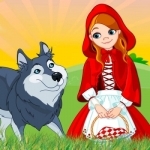
200 Fairy Tales for Kids - The Most Beautiful Stories for Children
Lifestyle
App
——————————————— 200 Fairy Tales for Kids...
